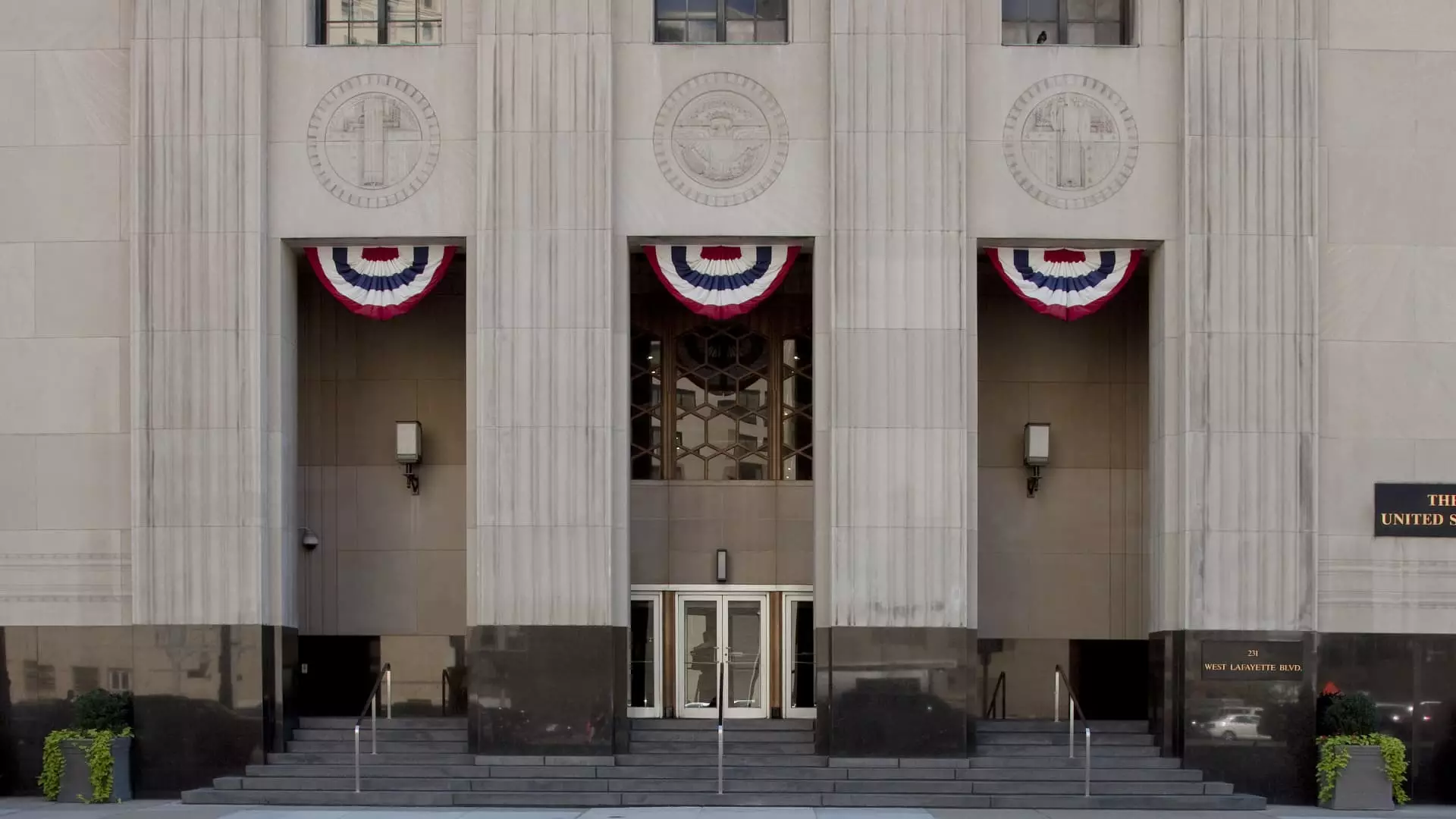The haunting specter of biological smuggling has surged to the forefront of national concerns, as demonstrated by the recent case involving a Chinese researcher and her partner at the University of Michigan. On the one hand, the events surrounding Yunqing Jian and Zunyong Liu’s alleged attempt to bring a dangerous agricultural pathogen—the fungus Fusarium graminearum—into the United States evoke deep unease. On the other hand, this incident raises critical questions about the efficacy of border protections and the responsibilities of academic institutions.
Fusarium graminearum is not merely an abstract notion; this fungus poses dire threats to agriculture, costing billions of dollars in economic damages while also endangering livestock and human health. The pathogen’s abilities to cause severe vomiting, liver damage, and reproductive defects should send chills down the spines of anyone involved in food production and safety. These are not just academic concerns; they are public health threats that need immediate attention.
Research Gone Awry
Jian, 33, who holds a position as a postdoctoral fellow at the university, had previously collaborated with Liu on research regarding the pathogen in their home country, which leaves many puzzled. How does one transition from being a dedicated researcher to engaging in potentially harmful smuggling attempts? While the desire to further one’s academic career is understandable, the routes taken by Jian and Liu reflect an alarming moral disregard.
Reportedly, Liu was stopped at Detroit Metropolitan Airport with the pathogen hidden in his backpack, cleverly disguised within plastic baggies and tissue. Initially, he claimed ignorance, only to later concede he was aware of the implications of smuggling such materials. This duality speaks volumes about the levels of desperation some individuals might reach in pursuit of academic ambition. The ramifications are not only legal; they breathe life into a breed of academic nihilism that disregards ethical boundaries for the sake of progress.
The Role of Institutions and National Security
The university’s response to the incident has been one of condemnation, asserting that it does not support actions threatening national security or public safety. But are their efforts enough? Academic institutions often view international talent as a boon, yet they must also assume the mantle of responsibility. When incidents like these emerge, they shatter the glass facade of American universities as safe havens for diverse ideas.
Funding is another incredibly pertinent aspect to consider. The university maintained that there were no financial ties to the Chinese government regarding Jian and Liu’s work, but the mere suspicion of malicious intent raises red flags about how universities evaluate their research partnerships. Does the philosophical pursuit of knowledge shield individuals from desperate measures, or does it inadvertently suggest that the ends justify the means?
A Flawed System and Accountability
The investigation, conducted by the FBI’s Counterintelligence Division, adds another layer to this perplexing situation. While stringent border regulations are in place to thwart such incursions, the reality remains that these safeguards may not be as impenetrable as they should be. A transparent dialogue about strengthening such defenses is necessary; complacency could open the floodgates for others inspired by lack of oversight.
Moreover, the couple’s WeChat discussions reveal a troubling willingness to skirt the law. Their interwoven plans to smuggle seeds expose not only a disregard for legal frameworks but also an undercurrent of belief in academic entitlement. Academic institutions must instill a rigorous ethical code alongside research methodologies to prevent future occurrences.
In a world where globalization has made borders more porous, the ramifications of Jian and Liu’s actions could set a precarious precedent. The pursuit of knowledge must never come at the expense of ethical integrity, and transparency must become the cornerstone of research collaborations. Without these principles, both the sanctity of academic research and the security of public health stand on shaking ground.


Leave a Reply